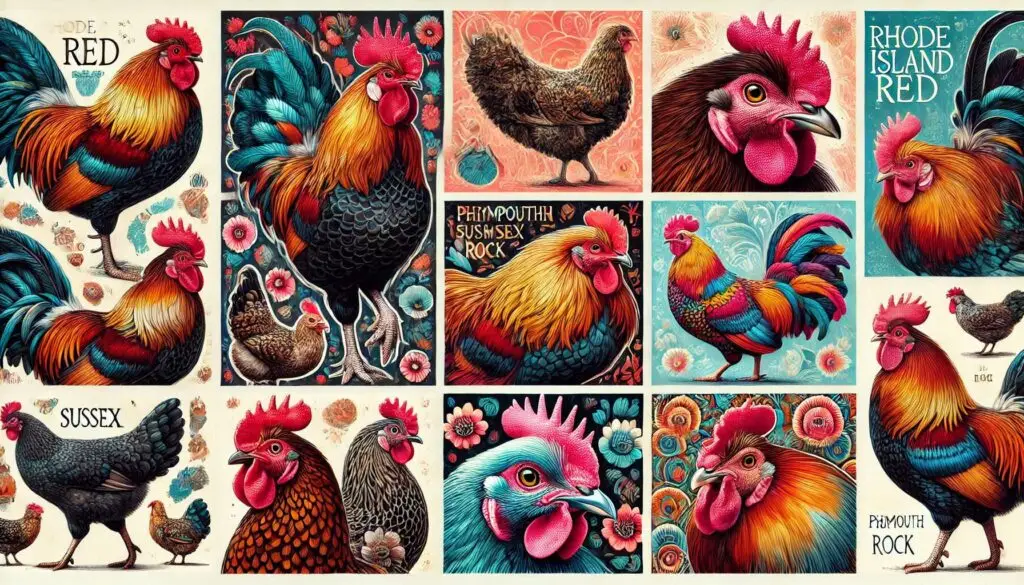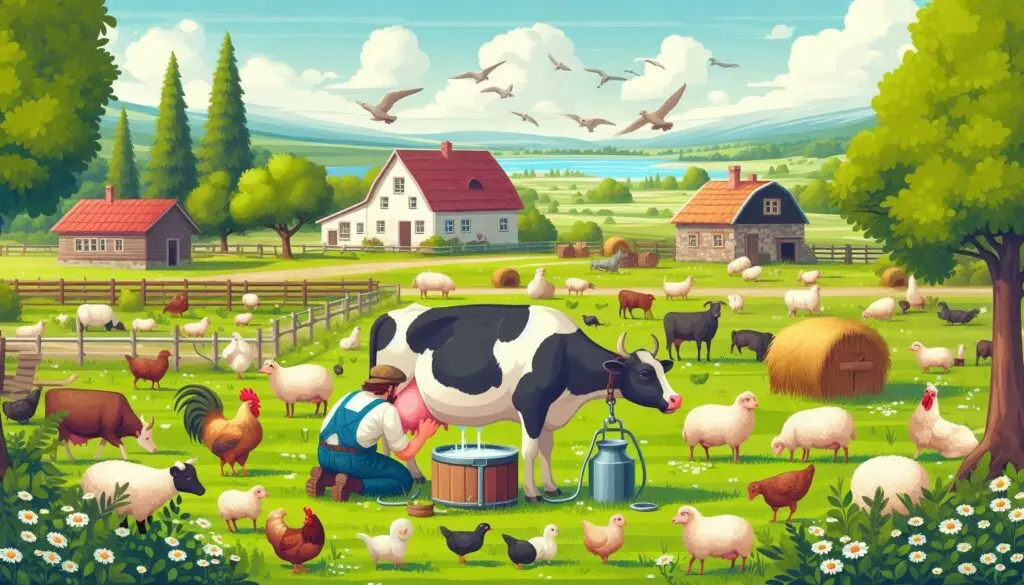Understanding Meat Chicken Breeds

Why Choose Meat Chickens?
Choosing the right breed of chicken can significantly impact your success in poultry farming. Meat chickens are bred for specific traits that make them ideal for meat production. They grow quickly, have a good feed-to-meat conversion ratio, and provide high-quality meat. For more information on poultry farming practices, check out this guide on raising chickens to get started.
Benefits of Raising Meat Chickens
- Fast Growth: Most meat breeds reach market weight in a short time.
- High Yield: These breeds provide a significant amount of meat.
- Versatility: Some breeds can also produce eggs.
- Sustainability: Raising your own chickens can reduce your carbon footprint.
Overview of Popular Meat Chicken Breeds
Let’s dive deeper into the three main types of meat chickens.
Cornish Cross
The Cornish Cross is perhaps the most well-known breed for commercial meat production.
Characteristics of Cornish Cross
- Rapid Growth: Cornish Cross chickens can reach 5 to 8 pounds in just 5 to 8 weeks.
- Meat Quality: They have tender and juicy meat with a favorable fat-to-muscle ratio.
- Health Issues: Due to their rapid growth, they may face health challenges like leg problems or heart issues.
For more insights on Cornish Cross chickens, visit Cornish Cross Chickens.
Raising Cornish Cross Chickens
- Housing: Provide adequate space to prevent overcrowding.
- Diet: Feed them a high-protein diet to support their growth.
- Water: Ensure constant access to clean water.
Broilers
The term broilers refers to various chicken breeds bred specifically for meat production.
Types of Broilers
Broilers include several hybrids and strains:
- Red Rangers: Known for their hardiness and ability to forage.
- Ginger Broilers: These birds are slower-growing but offer excellent flavor.
For more information on different broiler types, you can read this broiler chicken guide.
Advantages of Broilers
- Diverse Options: Farmers can choose from various strains based on their needs.
- Healthier Growth Rates: Some broilers grow slower but are healthier overall.
Jersey Giant
The Jersey Giant is one of the largest chicken breeds available today.
Characteristics of Jersey Giants
- Size: They can weigh up to 13 pounds at maturity.
- Dual Purpose: Jersey Giants are suitable for both meat and egg production.
- Slow Growth Rate: They take longer to reach maturity compared to modern broilers.
For more details about Jersey Giants, check out this Jersey Giant overview.
Best Practices for Raising Jersey Giants
- Space Requirements: Provide ample room for these large birds.
- Balanced Diet: Ensure they receive a nutritious diet to support healthy growth.
- Socialization: Jersey Giants are friendly and benefit from social interaction.
Comparison of Meat Chicken Breeds
To help you choose the right breed for your needs, here’s a comparison table:
| Breed | Growth Rate | Average Mature Weight | Primary Use |
| Cornish Cross | 5-8 weeks | ~8 lbs | Meat |
| Broilers | Varies (5-12 weeks) | Varies (5-10 lbs) | Meat |
| Jersey Giant | 16-20 weeks | Up to 13 lbs | Meat & Eggs |
Choosing the Right Breed for Your Farm
When selecting a breed, consider your goals:
- If you want rapid meat production, go with Cornish Cross or fast-growing broilers.
- If you prefer larger birds that also lay eggs, consider Jersey Giants.
Feeding and Care Tips for Meat Chickens
Proper care and feeding are crucial for raising healthy meat chickens.
Nutrition Requirements
- Starter Feed: Use high-protein starter feed for chicks.
- Grower Feed: Transition to grower feed as they mature.
- Finisher Feed: Offer finisher feed before processing to enhance meat quality.
Housing Considerations
- Space Needs: Provide at least 3 square feet per bird in the coop.
- Ventilation: Ensure good airflow to prevent respiratory issues.
- Bedding Material: Use straw or wood shavings for bedding to absorb moisture.
Health Management
Regular health checks are vital:
- Vaccination: Vaccinate against common diseases like Marek’s disease.
- Biosecurity Measures: Implement biosecurity practices to prevent disease spread.
- Observation: Monitor behavior and eating habits regularly.
For more tips on chicken care, refer to this chicken care guide.
Conclusion
Raising meat chickens can be both enjoyable and profitable. Understanding the characteristics of different breeds like Cornish Cross, Broilers, and Jersey Giants will help you make informed decisions that suit your farming goals. Whether you aim for quick growth or larger birds that also lay eggs, there’s a breed that fits your needs perfectly.
More from Genetics and Animal Breeding:
Family Selection in Livestock





Your point of view caught my eye and was very interesting. Thanks. I have a question for you.
Your point of view caught my eye and was very interesting. Thanks. I have a question for you.
Your point of view caught my eye and was very interesting. Thanks. I have a question for you.